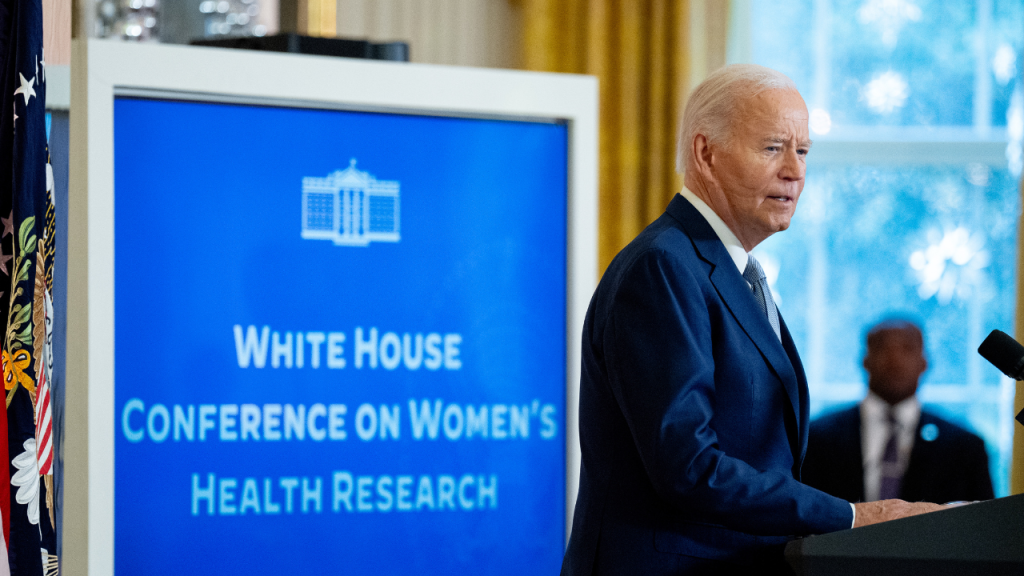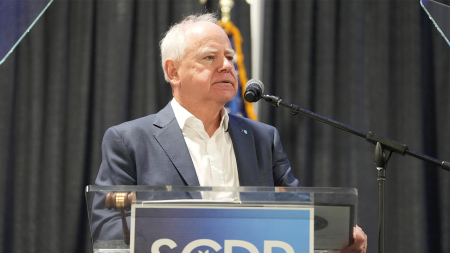President Biden’s recent remarks on women’s health, delivered at the first-ever White House conference dedicated to the topic, ignited a fiery debate about the role of government in women’s healthcare and the divergent approaches of Democrats and Republicans. Biden emphasized the interconnectedness of women’s health and national prosperity, arguing that the well-being of women directly impacts the economic and social fabric of the nation. He criticized Republicans for failing to grasp this fundamental connection, suggesting a disconnect between the Democratic administration’s focus on women’s health and the Republican Party’s perceived lack of attention to the issue. This core disagreement underscores the deep partisan divide on not only women’s health specifically but also on broader social issues and the role of government in addressing them.
Republican critics, however, countered Biden’s assertions, arguing that the Democratic Party’s policies actually undermine the safety and well-being of women. They pointed to the Biden administration’s stance on transgender issues, specifically regarding access to women’s spaces and participation in women’s sports, as evidence of their disregard for women’s concerns. Conservatives like Tiffany Justice, co-founder of Moms for Liberty, argued that allowing transgender women into spaces designated for biological women infringes on the safety and privacy of cisgender women. This criticism reflects a broader conservative concern about the erosion of traditional gender norms and the potential negative consequences for women. Furthermore, they questioned Justice Ketanji Brown Jackson’s refusal to define the term “woman” during her confirmation hearings as further evidence of the Democratic Party’s departure from traditional definitions of gender.
The debate also extended to the issue of abortion, a perennial flashpoint in American politics. Sarah Perry of the Heritage Foundation, a prominent conservative think tank, interpreted Biden’s remarks as implicitly endorsing abortion as healthcare, a position that resonates strongly with the Democratic base but clashes with the pro-life stance of many Republicans. Perry criticized the Biden administration for promoting what she considered radical ideological policies, specifically citing the appointment of Rachel Levine, a transgender woman, as Assistant Secretary for Health. This appointment, while celebrated by many on the left as a milestone for transgender representation in government, drew criticism from conservatives who question Levine’s qualifications and view the appointment as a political statement.
Adding another layer to the debate, Republican strategist Colin Reed linked the Democratic Party’s perceived focus on identity politics to their recent electoral setbacks. He argued that the Democrats’ emphasis on issues like transgender rights alienates a significant portion of the electorate and contributes to their losses at the ballot box. This analysis suggests that the Democratic Party’s focus on progressive social issues may be hindering their ability to connect with voters on broader economic and social concerns. Reed’s perspective reflects a broader Republican belief that the Democratic Party has become too focused on niche issues, losing touch with the concerns of mainstream America.
Karoline Leavitt, a spokesperson for the Trump administration, further contrasted the Democratic and Republican approaches by highlighting former President Trump’s focus on the health of “ALL Americans,” implicitly including women. This statement echoes the Republican argument that their policies benefit all citizens, while Democratic policies prioritize specific identity groups. It also signals the continuing influence of Trump within the Republican Party and his potential role in shaping the party’s messaging on healthcare in future elections.
In essence, the clash between Biden and his Republican critics highlights a fundamental disagreement not just on specific policies but on overarching philosophical perspectives on gender, healthcare, and the role of government. The Democratic Party, under Biden’s leadership, champions a more expansive view of government’s role in promoting social equity and addressing healthcare disparities, including those affecting women. Republicans, on the other hand, advocate for a more limited government role, emphasizing individual liberty and traditional values. This ideological divide continues to shape the political landscape and influence the debate on women’s health and a host of other social issues. The ongoing dialogue, often fraught with tension and disagreement, underscores the importance of continued discussion and engagement on these critical issues facing the nation.










